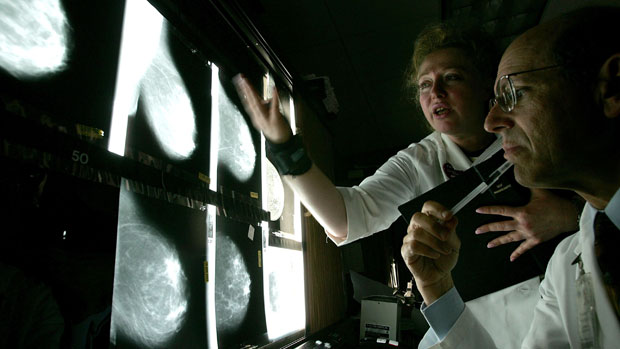Most popular HRT 'nearly trebles risk of breast cancer'
Women taking combined oestrogen-progestogen treatment more likely to develop illness, says Institute of Cancer Research

A free daily email with the biggest news stories of the day – and the best features from TheWeek.com
You are now subscribed
Your newsletter sign-up was successful
A major new study claims women who take the most commonly used form of hormone replacement therapy (HRT) are nearly three times more likely to develop breast cancer than those who do not.
The Institute of Cancer Research looked at six years of data for 39,000 menopausal women, of whom 775 had developed the illness. It found those taking combined oestrogen-progestogen HRT – the most popular form – were 2.74 times more likely to develop breast cancer than those not using any HRT at all.
The risk declined when women stopped taking the treatment, while there was no danger at all connected with taking only oestrogen, which accounts for half of all prescriptions.
The Week
Escape your echo chamber. Get the facts behind the news, plus analysis from multiple perspectives.

Sign up for The Week's Free Newsletters
From our morning news briefing to a weekly Good News Newsletter, get the best of The Week delivered directly to your inbox.
From our morning news briefing to a weekly Good News Newsletter, get the best of The Week delivered directly to your inbox.
"Our research shows that some previous studies are likely to have underestimated the risk of breast cancer with combined oestrogen-progestogen HRT," said study leader Professor Anthony Swerdlow.
"Our findings provide further information to allow women to make informed decisions about the potential risks and benefits of HRT use."
The National Institute for Health and Care Excellence (Nice) said the study should not deter women from using HRT, nor stop doctors from prescribing it.
"As with Nice guidance, this study recognises there is no increased risk of breast cancer with oestrogen-only HRT but the combined HRT can be associated with an increased risk of breast cancer," said Professor Mark Baker, director of the Centre for Guidelines at Nice.
A free daily email with the biggest news stories of the day – and the best features from TheWeek.com
"The message from our guidance to women is clear – talk about the menopause with your clinician if you need advice on your symptoms - it’s very important to discuss the options to find what might help you."
HRT, which works by topping up the decreased levels of hormones produced by the body, is often given to women to treat symptoms of the menopause, such as hot flushes, migraines, disrupted sleep, mood changes and depression, says the Daily Telegraph.